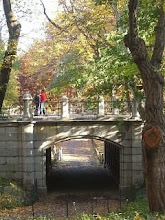:
A prestigiada revista americana “New Yorker” converteu-se definitivamente a Portugal. Primeiro e mais recentemente com Jorge Colombo e os seus desenhos sobre New York, no iPhone. As duas capas que conseguiu na revista e toda a mediatização que alcançou, falando sobre as suas origens e sobre o seu país.
:A prestigiada revista americana “New Yorker” converteu-se definitivamente a Portugal. Primeiro e mais recentemente com Jorge Colombo e os seus desenhos sobre New York, no iPhone. As duas capas que conseguiu na revista e toda a mediatização que alcançou, falando sobre as suas origens e sobre o seu país.
 :
:Mas Colombo continua a surpreender-nos com a sua influência na “New Yorker” e a grande procura dos seus desenhos. Ainda agora na edição on-line da revista, vários desenhos com a mesma técnica e idênticos resultados finais.
 :
:
 A outra surpresa data de Maio passado e recai sobre uma reportagem extensa de Peter Conrad dedicada a António Lobo Antunes, intitulada “Doctor and Patient”.
A outra surpresa data de Maio passado e recai sobre uma reportagem extensa de Peter Conrad dedicada a António Lobo Antunes, intitulada “Doctor and Patient”.
Peter Conrad nasceu na Tasmânia e está radicado nos Estados Unidos há alguns anos. Colaborador regular de várias prestigiadas publicações, Conrad já escreveu anteriormente sobre Portugal na sua crónica sobre José Mourinho intitulada “O Grande Ditador”, no “The Observer”.
:
 :
: A outra surpresa data de Maio passado e recai sobre uma reportagem extensa de Peter Conrad dedicada a António Lobo Antunes, intitulada “Doctor and Patient”.
A outra surpresa data de Maio passado e recai sobre uma reportagem extensa de Peter Conrad dedicada a António Lobo Antunes, intitulada “Doctor and Patient”.Peter Conrad nasceu na Tasmânia e está radicado nos Estados Unidos há alguns anos. Colaborador regular de várias prestigiadas publicações, Conrad já escreveu anteriormente sobre Portugal na sua crónica sobre José Mourinho intitulada “O Grande Ditador”, no “The Observer”.
:
Conrad caracteriza-o à luz do seu passado: “The Portuguese novelist António Lobo Antunes discovered his literary vocation while delivering babies, performing amputations, and carving up corpses. Lobo Antunes trained as a doctor, and in the early nineteen-seventies, during military service, he was dispatched to Angola, near the end of a futile war in which the faltering Portuguese empire grappled to retain its African colony. In a makeshift infirmary, he lopped off limbs while a queasy quartermaster—disqualified from operating because the sight of blood made him sick—turned away and recited instructions from a textbook. Lobo Antunes also assisted a witch doctor who presided over births”.
:
 A temática inevitável relativa à rivalidade Saramago vs. Lobo Antunes, é também tratada com grande atenção: “Internationally, Lobo Antunes is overshadowed by his older colleague José Saramago, who won the Nobel Prize in 1998. At home, the two writers, like rival political parties or sports teams, have noisy partisans, and those who cheer for Lobo Antunes claim that the wrong man won the Nobel. Lobo Antunes himself apparently agrees: when the Times called for a comment on Saramago’s victory he grumbled that the phone was out of order and abruptly hung up. Their cramped country may not be big enough for both men, but from a distance the internecine feud hardly matters. Good novelists are unique, which makes them incomparable”.
A temática inevitável relativa à rivalidade Saramago vs. Lobo Antunes, é também tratada com grande atenção: “Internationally, Lobo Antunes is overshadowed by his older colleague José Saramago, who won the Nobel Prize in 1998. At home, the two writers, like rival political parties or sports teams, have noisy partisans, and those who cheer for Lobo Antunes claim that the wrong man won the Nobel. Lobo Antunes himself apparently agrees: when the Times called for a comment on Saramago’s victory he grumbled that the phone was out of order and abruptly hung up. Their cramped country may not be big enough for both men, but from a distance the internecine feud hardly matters. Good novelists are unique, which makes them incomparable”. :
:Lobo Antunes é classificado como alguém que "permanece obsessivamente local, preocupado com as dores herdadas da história portuguesa e as debilidades culturais do país". O contrário de Saramago, sugere Conrad, cujas "parábolas seculares, geralmente localizadas em países imaginários, zarpam facilmente para a universalidade".
: :
:Curiosa é também a abordagem, por nós já conhecida, da sua obsessão com o Prémio Nobel: “Brooding over the Nobel Prize, Lobo Antunes once said, “My medical career would terminate the moment I cash that check.” But his day job has been the making of him, and it isn’t easy to dissociate his artistry from his clinical skills. During his medical training, he attended what he calls “the lesson at the morgue,” and what he learned there shaped his methods as a writer”.
: :
: Deixo uma última transcrição deste excelente artigo de Peter Conrad. A alusão ao passado grandioso de Portugal e a pergunta dolorosa mas realista, no final: “Lobo Antunes’s implosion of Portuguese history works so well because revenants from the country’s grandiose past can be seen all over Lisbon, stiff with rigor mortis. Statues of navigators, of the kings who prompted their expeditions, and of the bards who obsequiously sang their praises scan the horizon from the pedestals. Camões has a monumental column of his own; the nineteenth-century novelist Eça de Queirós embraces a lissome marble muse in a garden; and a bronze effigy of the modernist poet Fernando Pessoa sits at a table outside a café that he once frequented, looking as if he had metallized while waiting for a refill. (As yet, there is no statue of Lobo Antunes, but a street has been named after him in the northern town of Nelas.) The Portuguese are proud of these venerable ancestors, but they can’t help feeling belittled by them. How did a country that once counted Brazil, Angola, Mozambique, Goa, and Macao as outlying provinces forfeit its empire and retract to the cramped edge of the Iberian Peninsula?”
Deixo uma última transcrição deste excelente artigo de Peter Conrad. A alusão ao passado grandioso de Portugal e a pergunta dolorosa mas realista, no final: “Lobo Antunes’s implosion of Portuguese history works so well because revenants from the country’s grandiose past can be seen all over Lisbon, stiff with rigor mortis. Statues of navigators, of the kings who prompted their expeditions, and of the bards who obsequiously sang their praises scan the horizon from the pedestals. Camões has a monumental column of his own; the nineteenth-century novelist Eça de Queirós embraces a lissome marble muse in a garden; and a bronze effigy of the modernist poet Fernando Pessoa sits at a table outside a café that he once frequented, looking as if he had metallized while waiting for a refill. (As yet, there is no statue of Lobo Antunes, but a street has been named after him in the northern town of Nelas.) The Portuguese are proud of these venerable ancestors, but they can’t help feeling belittled by them. How did a country that once counted Brazil, Angola, Mozambique, Goa, and Macao as outlying provinces forfeit its empire and retract to the cramped edge of the Iberian Peninsula?”











































































Sem comentários:
Enviar um comentário